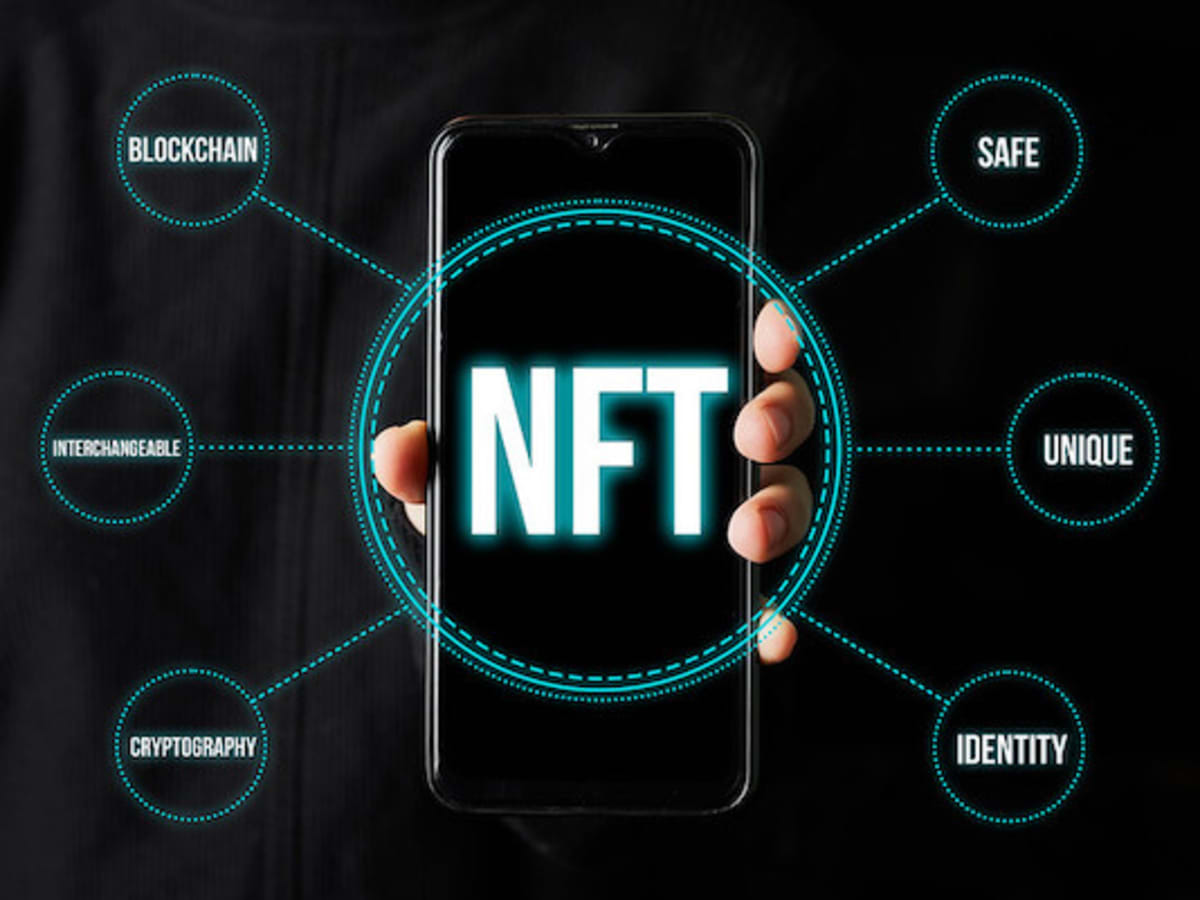
James Carter
NFT Project Funding: Unlocking the Potential of NFTs

The emergence of non-fungible tokens (NFTs) has disrupted the digital landscape, revolutionizing the way digital assets are bought, sold, and traded. NFTs, which are unique digital tokens that represent ownership of digital assets such as artwork, music, and virtual real estate, have gained significant attention and adoption in recent years. As NFTs continue to gain momentum and evolve, funding plays a crucial role in supporting NFT projects and unlocking their potential.
In this article, we will delve into the world of NFT project funding and explore the different methods of funding available for NFT projects. We will discuss the pros and cons of each funding method, highlight key considerations in NFT project funding, and provide best practices for successfully securing funding for NFT projects.
Overview of NFT Project Funding
NFT project funding can take various forms, depending on the stage of the project, the funding needs, and the strategic objectives. Here are some of the common methods of NFT project funding:
1. Seed Funding
Seed funding involves raising capital from initial investors or early-stage backers to kickstart an NFT project. This type of funding typically occurs in the early stages of the project when the concept is still in development, or the team is in the process of building a prototype or minimum viable product (MVP). Seed funding can come from individual angel investors, venture capital firms, or strategic partners.
A. Pros of Seed Funding:
- Provides initial capital to launch the project and cover early expenses
- Allows founders to retain more ownership and control over the project
- Offers an opportunity to establish relationships with potential long-term investors or partners
B. Limitations of Seed Funding:
- It may be challenging to secure due to the high risks associated with early-stage projects
- It may require founders to give up equity or provide significant returns to investors
- It may not provide enough capital to sustain the project beyond the initial stages
2. Crowdfunding
Crowdfunding involves raising capital from a large number of people, typically through online platforms, to fund an NFT project. Crowdfunding campaigns may offer various incentives, such as limited edition NFTs, exclusive access to content, or merchandise, to attract backers. Crowdfunding can be conducted through platforms like Kickstarter, Indiegogo, or dedicated blockchain-based crowdfunding platforms.
A. Pros of Crowdfunding:
- Provides a platform for creators to directly engage with their community and gain support
- Allows for wider exposure and marketing of the project
- Can generate funding from multiple sources, reducing reliance on a single investor or entity
B. Challenges of Crowdfunding:
- Requires significant effort and resources to run a successful campaign
- Involves transaction fees and platform charges
- May not provide sufficient capital for larger-scale projects
3. Venture Capital Funding
Venture capital (VC) funding involves raising capital from specialized investment firms or venture capitalists who provide funding in exchange for equity or ownership in the NFT project. VC funding is typically sought by NFT projects that have demonstrated significant growth potential or scalability and are looking to accelerate their development and expansion.
A. Pros of Venture Capital Funding:
- Can provide substantial funding to scale the project and drive growth
- Offers access to experienced investors with industry expertise and networks
- Can provide mentorship and guidance to the project team
B. Cons of Venture Capital Funding:
- Involves giving up equity and ownership in the project
- It may require founders to relinquish decision-making control to investors
- It can involve complex terms and conditions that may impact the project’s direction
4. Initial NFT Offerings (INOs)
Similar to initial coin offerings (ICOs) in the cryptocurrency space, initial NFT offerings (INOs) involve issuing and selling a limited number of NFTs to raise capital for an NFT project. INOs are typically conducted on blockchain-based platforms and allow investors to purchase NFTs that represent ownership of the project or access to its assets or content. INOs have gained popularity as a funding method for NFT projects due to their decentralized nature and potential for rapid fundraising.
A. Pros of Initial NFT Offerings (INOs):
- Provides a decentralized and inclusive funding method that allows for broader participation
- Can generate substantial capital in a relatively short period of time
- Offers early adopters the opportunity to gain exclusive access or ownership in the project
B. Challenges of Initial NFT Offerings (INOs):
- Regulatory challenges and legal uncertainties surrounding the NFT space
- Requires careful planning and execution to ensure compliance and investor protection
- This may involve high transaction fees and gas costs on blockchain platforms
5. Tokenized Equity or Revenue Share
Tokenized equity or revenue share involves issuing tokens that represent ownership in the NFT project or a share of its future revenue or profits. This funding method combines elements of traditional equity financing with the tokenization features of NFTs, providing investors with potential financial returns based on the success of the project.
A. Pros of Tokenized Equity or Revenue Share:
- Provides investors with the potential for financial returns based on the success of the project
- Can align the interests of investors and project founders toward the long-term success of the project
- Offers flexibility in structuring the terms and conditions of the tokenized equity or revenue share
B. Cons of Tokenized Equity or Revenue Share:
- Requires careful structuring and legal considerations to ensure compliance and investor protection
- Involves giving up ownership or revenue share in the project
- It may be complex to manage and distribute returns to token holders
WATCH THE VIDEO BELOW FOR MORE CLARIFICATIONS
Key Considerations in NFT Project Funding
When seeking funding for an NFT project, there are several key considerations that project founders should keep in mind to ensure a successful fundraising campaign and maximize the potential of their project:
1. Project Viability and Potential for Success
Investors are interested in projects that have a clear vision, a well-defined business model, and a strong value proposition. Project founders should thoroughly assess the viability and potential for success of their NFT project before seeking funding. This includes conducting market research, evaluating the competition, and identifying the target audience and their needs. A solid business plan and a roadmap for project development and growth can instill confidence in potential investors and increase the chances of securing funding.
2. Project Team and Experience
The expertise and experience of the project team can greatly influence the success of an NFT project and its ability to attract funding. Investors often look for a capable and diverse team with relevant industry experience, technical expertise, and a track record of success. Project founders should highlight the strengths of their team and demonstrate their ability to execute the project’s vision and deliver on its objectives.
3. Funding Amount and Use of Proceeds
Project founders should carefully assess their funding needs and determine the amount of capital required to achieve their project goals. Overestimating or underestimating the funding amount can impact the project’s financial sustainability and valuation. It’s also important to have a clear plan for the use of proceeds and how the funds will be allocated toward the development, marketing, and operations of the project. Providing transparency and accountability in the use of funds can enhance investor trust and confidence.
4. Risk Assessment and Mitigation
NFT projects, like any other venture, come with inherent risks. Project founders should conduct a comprehensive risk assessment and identify potential risks and challenges associated with their project, such as technological, legal, regulatory, market, and operational risks. Developing a mitigation plan to address these risks and demonstrating proactive measures to manage and mitigate potential challenges can reassure investors and reduce investment risks.
5. Investor Protection and Compliance
As the NFT space is still evolving and lacks clear regulatory frameworks in many jurisdictions, ensuring investor protection and compliance with applicable laws and regulations is critical. Project founders should seek legal counsel and ensure that their fundraising campaign and NFT project comply with all relevant securities laws, anti-money laundering (AML) regulations, and other regulatory requirements. Implementing appropriate Know Your Customer (KYC) and Anti-Money Laundering (AML) procedures, as well as providing clear terms and conditions for investors, can help establish trust and credibility with potential investors.
6. Marketing and Promotion
An effective marketing and promotion strategy is crucial for attracting investors to an NFT project. Project founders should develop a comprehensive marketing plan that includes targeted outreach to potential investors, utilizing social media, forums, and other online platforms to create awareness, and showcasing the unique value proposition of their NFT project. Building a strong community around the project, engaging with potential investors, and creating buzz can significantly enhance fundraising efforts.
7. Transparency and Communication
Transparency and communication are key factors in building trust with potential investors. Project founders should provide transparent information about their NFT project, including its goals, progress, risks, and financials. Regular updates and communication with investors can help establish trust, build investor confidence, and foster a long-term relationship. Being responsive to investor inquiries, addressing concerns, and maintaining open lines of communication can go a long way in securing funding and building a loyal investor base.
Summary
NFTs have emerged as a groundbreaking technology that is transforming various industries, including art, gaming, collectibles, and more. NFT projects require funding to bring their visions to life and realize their potential. With the increasing interest and demand for NFTs, there are various funding methods available for NFT projects, each with its pros and cons.
From traditional methods such as venture capital and crowdfunding to innovative approaches like Initial NFT Offerings (INOs) and tokenized equity or revenue share, NFT project founders need to carefully consider their funding options and choose the one that aligns with their project goals, team capabilities, and investor expectations.
Latest
NFT
03 Feb 2026












